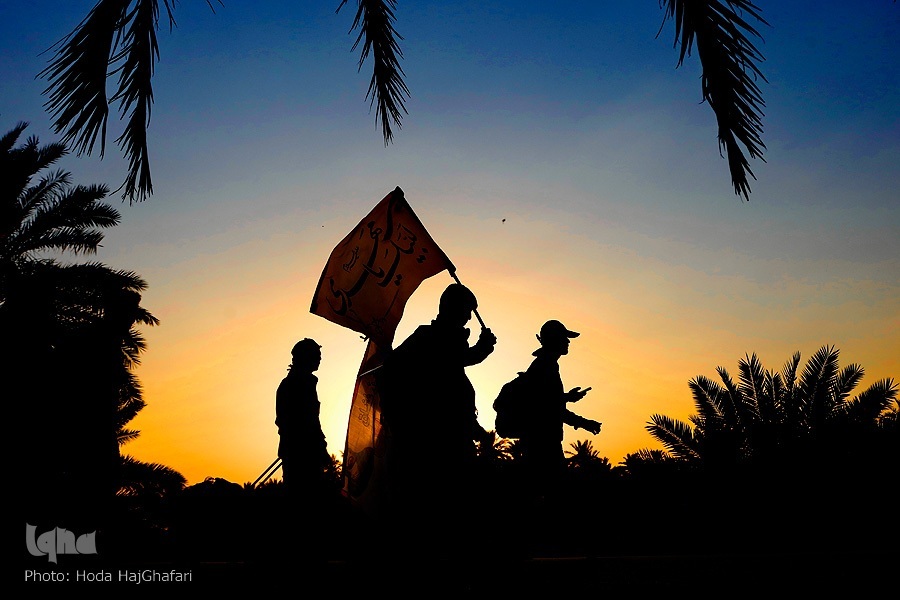Four Key Takeaways from Arbaeen

Arbaeen is a religious event that is observed by Shia Muslims on the fortieth day after the Day of Ashura. It commemorates the 40th day of martyrdom of Hussein ibn Ali (AS), the grandson of Prophet Muhammad (PBUH) and the third Shia imam, who was killed by the army of Yazid I in the Battle of Karbala in 680 CE.
Arbaeen is also known as the Ziyarat of Arbaeen, which means the visitation of Imam Hussein’s (AS) shrine in Karbala, Iraq, where his body is buried. Ziyarat is an act of pilgrimage and devotion in Shia Islam.
Arbaeen is one of the largest annual pilgrimages in the world, with millions of Shia Muslims from different countries walking to Karbala from various cities in Iraq and neighboring countries. The distance can range from 80 km to 500 km or more, depending on the starting point.
This remarkable pilgrimage, deeply rooted in the heart of Shia Islam, holds within its sacred procession an invaluable mix of lessons.
Arbaeen is not just an annual commemoration; it is a vibrant mosaic of love, generosity, solidarity, patience, and humility that can serve as a guiding light for humanity.
The Lesson of Love and Solidarity
The annual Arbaeen pilgrimage is a powerful expression of love and solidarity. Millions of people from all walks of life come together to commemorate the martyrdom of Imam Hussein (AS).
The Arbaeen pilgrimage transcends national, ethnic, and linguistic boundaries. Pilgrims from all over the world walk side by side, united by their shared faith and love for Imam Hussein (AS). This powerful display of unity is a reminder that we are all human beings, regardless of our differences.
The Arbaeen pilgrimage teaches one that love is the most powerful force in the world. It can overcome hatred, division, and violence.
The Lesson of Generosity
The Arbaeen pilgrimage is a journey of generosity. Pilgrims from all over the world open their hearts and homes to strangers, providing food, water, and shelter along the way. These makeshift camps, known as moukebs, are a testament to the selflessness of those who understand the value of giving.
The Arbaeen pilgrimage teaches one that generosity is not just about giving money or possessions. It is also about giving our time, energy, and compassion. It is about being open-handed and welcoming to those in need.
Any service that pilgrims may need, from repairing their shoes to accommodation, is offered by volunteers who often save money during the year to be able to serve pilgrims.
The Lesson of Patience
Arbaeen is an occasion that highlights the value of patience. Millions of pilgrims walk to Karbala, facing the heat and the hardship of the road, as a way of commemorating the ordeal of Imam Hussein (AS) and his followers in 680 CE. Arbaeen shows how patience can help overcome physical challenges, as well as life's struggles.
Life is full of difficulties that can challenge one's faith and commitment. Arbaeen inspires one to face these difficulties with patience, trusting in God's purpose and plan. It also gives one hope and optimism for the future, as it reminds one that Hussein’s sacrifice was a source of change. Arbaeen suggests that one's trials can lead to transformation, and one's patience can open the door for a better tomorrow.
The Lesson of Humility
Arbaeen is an event that emphasizes the virtue of humility. Millions of pilgrims walk together to Karbala, blending into a crowd where individual differences are irrelevant. This collective experience shows the importance of being humble and modest, especially when one has blessings or success in life.
Arbaeen urges one to let go of ego and arrogance, and to be thankful for the blessings one has. It also urges one to be respectful and polite to others, even when one has disagreements or conflicts with them. In a world that is often divided, this lesson is a timely reminder of the importance of civility and respect in one's interactions.
Arbaeen encourages one to practice humility in one's daily life. It is a call to acknowledge one's shared humanity and recognize the value and dignity of every person, regardless of their status in life. In doing so, one contributes to a world where humility prevails, bridging gaps and creating harmony.
The Arbaeen pilgrimage is a powerful reminder of the enduring qualities that make us human. It teaches us to love unconditionally, to be generous and hospitable, and to stand together in solidarity. These timeless lessons, rooted in the sacrifice of Imam Hussein (AS) and his family, serve as a guiding light for all of humanity, transcending borders and beliefs.
By Mohammad Ali Haghshenas



